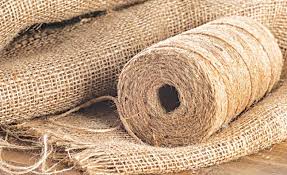India is contemplating increasing duties on jute and jute products to curb the influx of inexpensive, subsidized jute imports from Bangladesh, which is adversely impacting local manufacturers, according to a senior official.
The combination of low-cost imports and high raw material expenses is discouraging and is held responsible for a decline in domestic jute product production.
India initiated an investigation into the import of Bangladeshi jute goods late last year, considering the imposition of countervailing duty (CVD) following a petition to the government by the Indian Jute Mills Association.
CVDs are intended to address the importation of goods benefiting from subsidies provided by the exporting country’s government. Under global trade regulations, such duties are permissible when subsidies are deemed excessively high and detrimental to local producers in the importing nation.
Despite the imposition of anti-dumping duty (ADD) on jute yarn, twine, sacking bags, and hessian fabric since 2017, the import of raw jute from Bangladesh surged by 19% to ₹5,359 million in the fiscal year 2022-23.
Dumping occurs when goods are exported at prices below production and shipping costs.
One of the primary reasons for this surge in imports is Bangladesh’s circumvention of ADD measures by exporting jute sacking cloth instead of jute sacking bags, which are not covered by Indian ADD measures. Additionally, hessian jute bags, also known as gunnysacks, are being smuggled into India from Nepal.
India ranks among the largest importers of jute and its products from Bangladesh, which offers export incentives such as a 12% cash subsidy on Hessian sacks and ‘carpet backing clothing’ (CBC), 7% on jute fibers including yarn and twine, and a 20% subsidy on jute diversified products, including food-grade bags and clothing.
India’s jute industry faces the looming threat of being labeled a “sunset industry,” according to officials, with mills in Bengal and eastern India reducing jute product production due to high procurement costs and declining demand, affecting the entire jute ecosystem from farmers to traders and transporters.
Non-compliance with the Jute Packaging Materials Act, 1987, by the sugar industry exacerbates the industry’s challenges. Despite provisions for penalties and search and seizure powers, the sugar industry has not adhered to the JPMA’s requirement to use jute bags for packaging at least 20% of sugar production.
The price of jute sacking bags, primarily used for packing food grains, has declined by 5% year-on-year to Rs.95,489 per tonne in December, reflecting the industry’s challenges.
Queries sent to spokespeople and secretaries of various ministries remained unanswered at the time of press.


